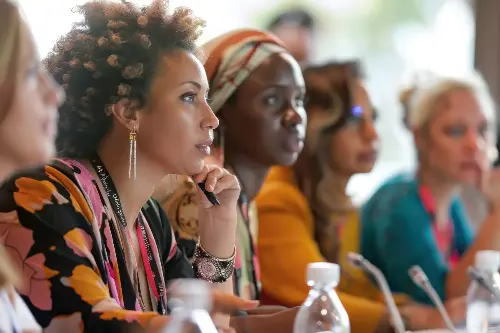Reflecting on the evolution of global women’s health is a narrative of remarkable progress punctuated by formidable challenges. It is a tale of unsung heroines, groundbreaking research, and policy reforms that have collectively shaped the trajectory of women’s health.

Beginning in the early 20th century, even discussing women's health in public was taboo. Despite this, advancements such as the introduction of the first birth control clinic in 1916 by Margaret Sanger in the United States marked a critical shift, empowering women with control over their reproductive health. However, universal access to reproductive health services remained—and in some areas, continues to be—a critical challenge.
The Shift in Focus and the Rise of Advocacy
As we advanced through the decades, the focus in women’s health gradually expanded beyond reproductive issues to include a broader spectrum of health concerns. In the mid-20th century, with increased advocacy and the rise of the feminist movement, there came newfound momentum in tackling a range of issues from breast cancer awareness to heart health, and the prevention and treatment of sexually transmitted infections.
Women's health was, for the first time, being discussed openly, with advocates like Betty Ford speaking about breast cancer, helping to destigmatize dialogue around women's health issues. These conversations laid the groundwork for future healthcare policies and the creation of dedicated health resources for women.
Celebrating Global Milestones
The closing decades of the 20th century bore witness to global milestones that included the establishment of the World Health Organization’s Special Programme of Research, Development and Research Training in Human Reproduction in the 1970s. This initiative led the way in improving reproductive health and research on a global scale.
Two landmark conferences, the International Conference on Population and Development in 1994 and the Fourth World Conference on Women in 1995, placed women's health and rights at the center of the global development agenda. The resulting action plans from these conferences pushed over 180 nations to commit to concrete strategies to improve the health and empowerment of women.

The 21st Century: Tech Revolution and Inclusion
The advent of the 21st century brought a tech revolution that transformed women's health. Mobile health applications and telemedicine services emerged, propelling access to health information and services to new heights and reaching women in even the most remote regions.
This era also saw the crystallization of the understanding that women’s health issues extend far beyond reproductive health, leading to more inclusive research that encompasses a broad range of health concerns such as mental health, non-communicable diseases, and the impact of gender-based violence.
Breaking Barriers in Health and Science
Previously underrepresented in medical research, women began to be included more equitably in clinical trials, helping to address gender disparities in treatments and outcomes. Scientists like Dr. Özlem Türeci, co-founder of BioNTech and co-creator of an mRNA-based COVID-19 vaccine, have showcased the critical role women play in forging new paths in global health advancements.

Steering Policies Toward Equality
Policy reform has been another arena of advancement. Global health policies increasingly adopt a gender perspective, recognizing the unique health needs of women. In 2021, the Generation Equality Forum ignited fresh commitments towards a gender-equal future, marking the most significant concerted push for women's health in a generation.
Challenges Persist, But Hope Endures
Despite the strides made, challenges in women's health persist. Inequities in healthcare access and quality, cultural stigmas, and a worrying trend of rollback on sexual and reproductive rights in some regions continue to threaten women’s health gains.
Nonetheless, the tireless efforts of individuals, communities, and organizations worldwide provide a beacon of hope. Grassroot initiatives and international partnerships show promise in addressing deep-rooted challenges. The UN Sustainable Development Goals, particularly Goal 5, which focuses on achieving gender equality and empowering all women and girls, underscores the ongoing global commitment to women’s health.

Looking Toward the Future with Optimism
The past century's formidable challenges have not dampened the triumphs in global women's health but rather have emboldened the efforts. As we look towards the future, we observe an evolving landscape where the health of women is increasingly recognized as fundamental to the health of our societies.
Movements for women's health equity are gaining momentum, driven by technology, policy, and a new generation of activists. Inspiring journeys in the fight for women's health rights reflect an unwavering resilience and dedication to this cause.
As we celebrate these victories, let us also appreciate the ongoing journey and commit to the work ahead. The evolution of global women's health is a testament to the inspiring journeys women navigate — from adversity to achievement, from challenge to change — their health stories are our shared legacy and our collective future.
